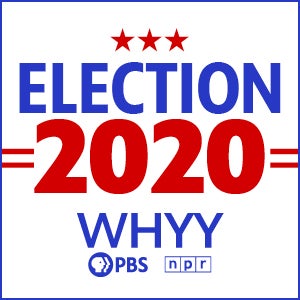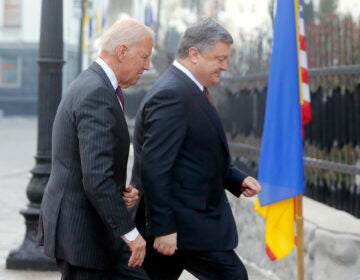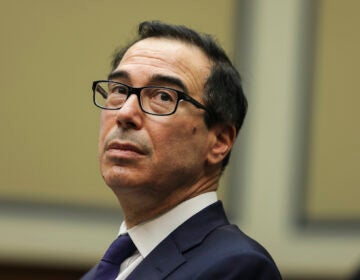Intelligence report: Russia tried to help Trump in 2020 election

Russian President Vladimir Putin authorized a campaign to help former President Donald Trump and undermine President Biden in last year's election, according to U.S. intelligence. Putin is shown here on March 12 at a residence outside Moscow. (Alexei Druzhinin/AP)
A new report by the U.S. intelligence community on Tuesday says Russia sought to help former President Donald Trump in last year’s presidential election. But the document also emphasized there was no indication Russia or any other country attempted to alter actual votes.
Russian President Vladimir Putin authorized “influence operations aimed at denigrating President Biden’s candidacy and the Democratic Party, supporting Trump, undermining public confidence in the electoral process and exacerbating socio-political divisions in the U.S,” says the report by the Office of the Director of National Intelligence.
The unclassified document is the most comprehensive look the intelligence community has released regarding foreign efforts to meddle in the 2020 election.
But the central message is the same one the intelligence community has been delivering since last August: Russia wanted Trump to win, though its effort was not on the same scale as in the 2016 election.
No evidence of vote fraud
U.S. election officials have repeatedly described last year’s balloting as secure and free of fraud. The intelligence community says in its finding that there was no fraud from abroad either.
“We have no indications that any foreign actor attempted to alter any technical aspect of the voting process in the 2020 US elections, including voter registration, casting ballots, vote tabulation, or reporting results,” the report says.
Trump and his supporters have offered a slew of unsubstantiated claims about election fraud by foreign countries, such as Venezuela.
During the campaign, Trump played down reports by the U.S. intelligence community that Russia was seeking to assist him. He made the counter-claim that China was making a major push to support Biden.
But Trump offered no evidence, and the intelligence report says China chose not to get directly involved in the U.S. election.
“We assess that China considered but did not deploy influence efforts intended to change the outcome of the U.S. presidential election,” the report says. “China sought stability in its relationship with the United States, did not view either election outcome as being advantageous enough for China to risk getting caught meddling.”
In the wake of Russia’s 2016 election interference, the U.S. intelligence community dramatically increased its efforts to prevent a repeat.
U.S. officials say the Russians did not operate on the same scale, and were not able to hack sensitive campaign emails or wage a widespread social media campaign.
Still, the Russians attempted to influence the election on other fronts.
“A key element of Moscow’s strategy this election cycle was its use of proxies linked to Russian intelligence to push influence narratives — including misleading or unsubstantiated allegations against President Biden — U.S. media organizations, U.S. officials, and prominent U.S. individuals, including some close to former President Trump and his administration,” report says.
The report named Ukrainian legislator Andrii Derkach as someone who “played a prominent role in Russia’s election influence activities. Derkach has ties to Russian officials as well as Russia’s intelligence services.”
The U.S. Treasury Department placed sanctions on Derkach last year.
Derkach has had contact in recent years with Trump’s former personal lawyer, Rudolph Giuliani, who in turn spread unsubstantiated claims about Biden’s work in Ukraine when Biden was vice president under President Barack Obama.
The intelligence report also says that Iran’s leader Ayatollah Ali Khamenei authorized an influence campaign to harm Trump, though the operations cited did not suggest they had any significant impact.
“We assess that Iran primarily relied on cyber tools and methods to conduct its covert operations because they are low cost, deniable, scalable, and do not depend on physical access to the United States,” the report notes.
9(MDAzMzI1ODY3MDEyMzkzOTE3NjIxNDg3MQ001))





